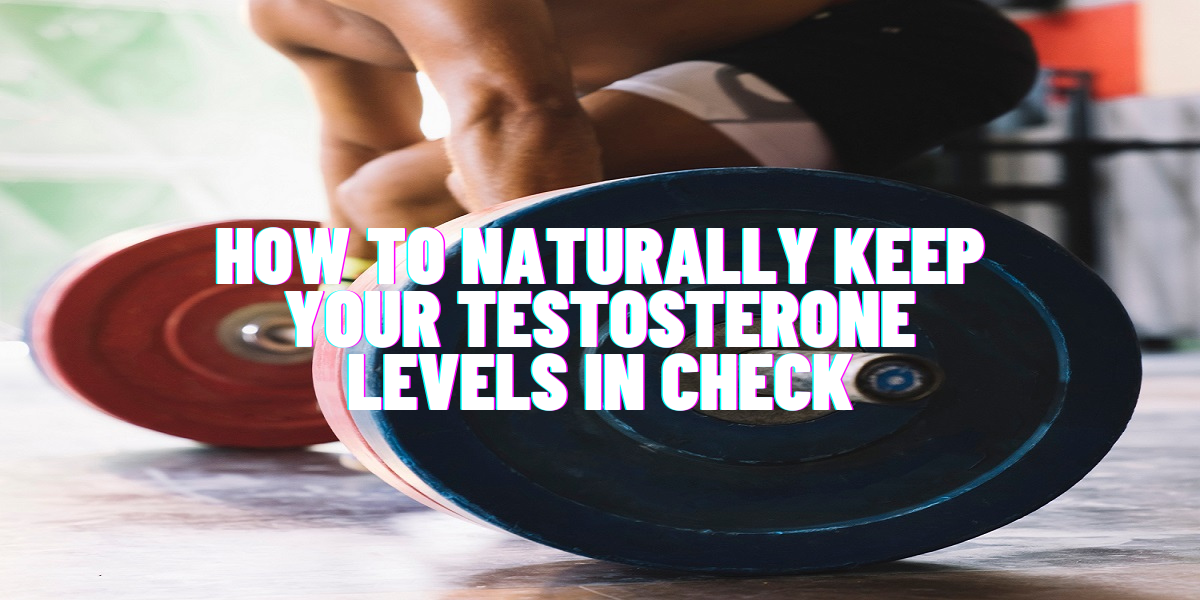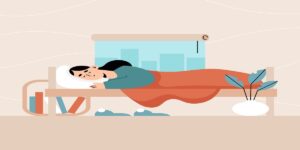How To Naturally Keep Your Testosterone Levels In Check

Testosterone deficiency is a natural phenomenon among aging men; and post-30 it starts dipping by 1.6 % every year while the bioavailable form declines by 2%–3%. However, there are ways in which you can slow down the process, or even enhance the body’s natural ability to produce testosterone to keep it in check.
Let’s find out what the various reasons behind testosterone decline are, the symptoms, and how you can naturally regulate its levels.
What Causes Testosterone Levels To Decline
The most common reason for testosterone drop in men is aging. This hormone is responsible for the development of the fetus, and various changes through puberty to adulthood like the growth of body hair, change in voice, expansion of muscles, etc. Therefore, once a man crosses that stage and posts 35, they start experiencing a gradual dip in testosterone level naturally. The decline can be slow or rapid depending on your lifestyle, age, diet, and various other factors.
Outside of the age factor, there can be other reasons as well why testosterone production may be affected- especially if it starts to happen earlier, say from your late 20s to early 30s.
Some of the underlying factors can be – compromised lifestyle, excess body fat, lack of proper sleep, injury in the testicles due to accidents, chemotherapy, surgery, and medication. Some men may also inherit it genetically from their ancestors or may have it due to genetic conditions like Noonan syndrome, and Klinefelter syndrome.
Some health conditions like diabetes, Pituitary gland disease, sexually transmitted diseases, high blood pressure and cholesterol, and autoimmune diseases can have drastic effects on testosterone production. So if you are facing hormonal issues at an earlier age than expected, you may want to take a look into any of these factors and take the necessary steps or get yourself checked.
Effects Of Low Testosterone On The Body
As mentioned earlier, testosterone performs a range of different functions in the body. Therefore, deficiency of this hormone can hinder some major functions and as a result, significant lifestyle changes.
One of the most common symptoms of low testosterone is reduced muscle mass and bone density. Testosterone is a key factor in bone and muscle maintenance and a prolonged deficiency thus can weaken these tissues in a major way. In fact, if not taken care of on time, it can eventually lead to osteoporosis. Adequate levels of testosterone promote protein synthesis which is necessary for building lean muscle mass. People with testosterone deficiency may find it hard to grow and maintain lean muscles.
Low testosterone levels in men can hinder sexual functions and cause low libido, erectile dysfunction, and low sperm count leading to infertility in extreme cases. When your hormone is not at a normal level you may tend to forget things. This is because it affects cognitive function, and causes mood swings, difficulty in focusing, anxiety, irritability, and depression. Aside from all these, it can slow down the metabolic processes which then leads to weight gain and other related problems overweight as cardiovascular issues, high blood pressure, improper functioning of the liver, etc.
Some of the other adverse impacts of low testosterone conditions in men include loss of hair in the armpit, pubic area, low energy, and shrinking of testicles among others.
How To Boost Testosterone Production
While a lack of testosterone can bring in major changes in your body and can be a cause of concern, there are ways to increase testosterone production. Here are some of the natural ways to boost testosterone levels which are also beneficial in the long run-
1. Regular Workout

A sedentary lifestyle is one of the biggest enemies of testosterone production. When you are not physically active, the blood circulation in the body decreases which brings down the metabolic rate. Reduced metabolism obstructs proper functioning of the digestive system which then leads to fat accumulation in the body. It can also affect heart health eventually. The best solution is to start doing regular workouts.
The types of exercises which have a prominent impact on testosterone production in the body are:
Resistance Training: One of the most common types of strength exercise, resistance training involves working your muscles against weights. It includes lifting free weights, barbells, resistance bands, bench presses, deadlifts, squats, and even your own body weight. Not only do resistance exercises help in fat burning but also give a significant boost to testosterone production.
High-intensity interval training (HIIT): This is yet another kind of exercise that has proven to be highly impactful when it comes to regulating testosterone. It includes intense workouts with short breaks in between until the body gets completely exhausted. A research publication from 2021 shows that HIIT increases free testosterone availability in the blood as well as muscle power.
Now, while the above forms of physical training are most effective, other types can also work depending on how much time you dedicate. However, it is important to remember that excess endurance training like cardio can actually bring down the testosterone level by 20 to 40%.
2. Healthy And Balanced Diet

Eating a healthy and nutritious diet is one of the crucial things when you are working on improving testosterone levels. This clearly means giving up on fried and fast foods, food with excessive sugar and oil. You also need to cut down processed food from your diet and include more fiber, fresh fruits, leafy greens, lean protein, healthy fats, whole-grain carbohydrates, and other essential vitamins and minerals.
Switching to a healthier diet will help in burning excess fat from the body, improve metabolism, and regulate blood sugar levels which in turn will improve testosterone production directly or indirectly.
Some of the best foods for improving testosterone health include:
- Fruits (pomegranate, berries, avocado, cherries)
- Green leafy vegetables (spinach, celery, kale, swiss chard, etc.)
- Garlic and onion
- Eggs and meat
- Fatty fish like oysters, tuna, mackerel and shellfish
- Nuts and seeds
- Ginger
- Honey
- Lemon
- Extra-virgin olive oil
3. Vitamin D

Vitamin D is a nutrient important for bone health- it increases bone density and fortifies them. What many people do not know is the fact that this vitamin is also essential in boosting testosterone. In the present day, most people suffer from vitamin D deficiency because of less exposure to sunlight, which is the main source of this nutrient. While there are various supplements available to restore this vitamin, exposing yourself to sunlight is the best way to get vitamin D into your body.
4. Get Into Healthy Sleeping Habits

The body gets affected in different ways when you do not follow proper sleeping habits or get enough sleep. This includes testosterone synthesis as well. The body tends to release the most amount of testosterone when you sleep at night. So the less you sleep, or have poor sleeping habits, it can impact testosterone synthesis in a major way. Lack of sleep affects blood circulation leading to high blood pressure, high levels of stress, heart problems, and hormonal imbalance among many other issues.
So if you are struggling to improve testosterone levels despite following a strict diet and workout regime, then consider changing to a healthy sleep pattern.
5. Shed Excess Weight

As mentioned earlier, excess body fat can come in the way of proper testosterone synthesis. The fat cells in the body contain aromatase- the enzyme which is responsible for converting testosterone into estrogen. It reduces the free testosterone in the blood and increases the concentration of estrogen. That is why when working on regulating testosterone, it is important to burn the excess fat in the body so as to increase the production of testosterone and also to protect it from converting.
You need to lose weight while maintaining lean muscle mass which you can achieve by adding adequate amounts of protein and fibre to the diet.
6. Natural Testosterone Boosting Supplements

Along with the earlier points like good diet, exercise, and sleep, you may want to consider using testosterone-boosting supplements from reputed brands that are made with natural ingredients. However, it is important to get your testosterone level tested before you start with these supplements. This is because the overproduction of testosterone may also affect health negatively.
You should also seek advice from your doctor if you have a medical condition, taking medicines, or undergoing treatment if you want to take these supplements.
Factors Behind Low Testosterone Production
There are various factors that can have an adverse impact on your testosterone production leading to a drop in the level:
1. Sedentary Lifestyle
One of the major factors which can negatively affect the production of testosterone is an inactive lifestyle. Today the majority of people are engaged in jobs that require them to sit in front of computers or desks for several hours during the day. And if that is not all, then, sitting in front of the television for long hours, pursuing contemporary hobbies which don’t involve much physical movement – everything combined can reduce testosterone synthesis and hormonal imbalance.
Aside from that, a sedentary lifestyle can affect heart health and have various other health risks like low metabolism leading to obesity and more which are also linked to testosterone deficiency.
2. Excessive Endurance Training
While exercise is definitely one of the best ways to combat low testosterone conditions, you need to ensure that you are doing the right kind of exercise. Where resistance training and HIIT are considered to be extremely impactful in boosting testosterone, long hours of endurance training like cardio, marathons training, or cycling can lead to fatigue which in turn decreases your body’s capability in testosterone production.
3. Medications And Treatment
Certain medications for the treatment of long-term or short-term health issues can affect sexual health by reducing testosterone production. Therefore, if you are undergoing any treatment and taking medicines for the same, and are experiencing low testosterone, then there are chances that the medicines are affecting testosterone synthesis. You may want to speak with your GP about it.
4. Alcohol And Drugs
It goes without saying that alcohol and drugs can affect health in a major way which includes reproductive health as well. They create oxidative stress in the testicles which leads to a lowering of the production of testosterone. Prolonged use of these addictive substances or abuse can be dangerous to both physical and mental health.
5. Stress
Various studies have directly linked stress with testosterone. With higher levels of stress, you may experience a significant dip in testosterone synthesis while coming out of a stressful condition can have a positive impact on hormone health.
While oftentimes stress cannot be avoided, there are ways to manage stress like by practicing yoga, meditation, exercises, taking natural anti-stressors, etc. This in turn can improve mental health which then increases the body’s capability to release testosterone. Not only that, bringing stress levels down can help improve the quality of life in many different ways.
Conclusion
Testosterone deficiency can be caused due to many underlying reasons and figuring out that will be able to help you work on regulating it. However, this may not happen instantly and require a lot of patience. Switching to a healthy lifestyle that involves following a nutrition-rich diet, regular exercise and proper sleep will significantly help in your efforts to achieve hormonal balance.
It is always recommended to go for natural ways to boost testosterone first because these are the safest ways without having to worry about any side effects. Hope this article helps you through your testosterone-regulating process and gets you back on track effectively.
